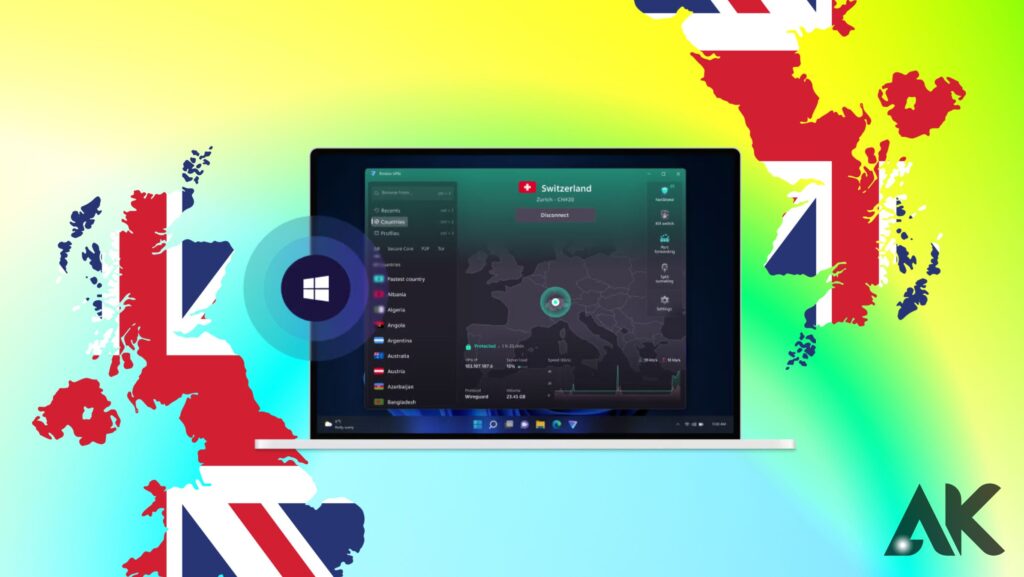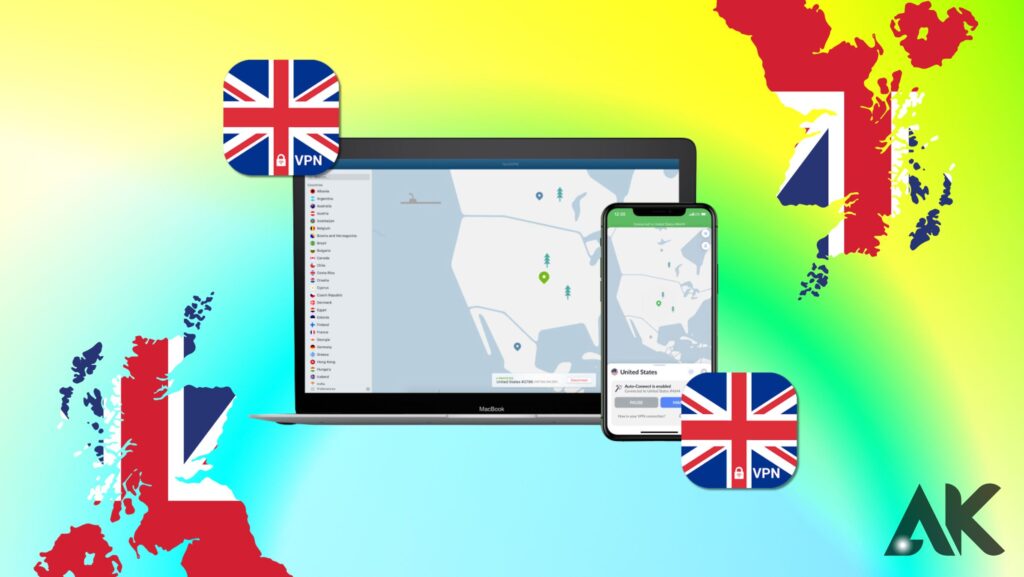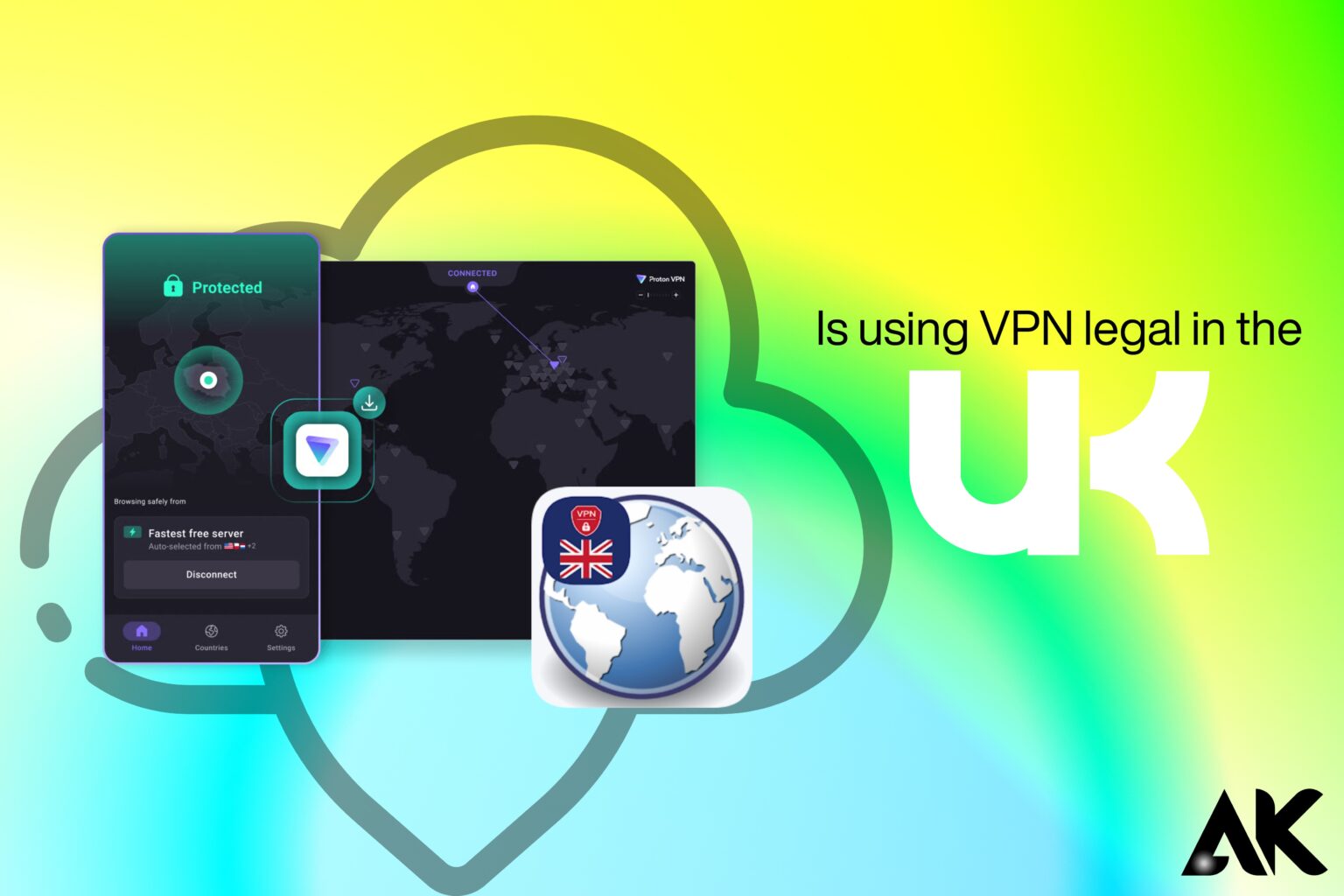Is using a VPN acceptable in the UK? Yes, it is generally completely legal to use a VPN in the UK. However, many continue to inquire, “Is it legal to use a VPN in the UK?” —especially in view of the growing concerns around Internet privacy, government eavesdropping, and internet limitations.
In order to help you understand the guidelines, risks, and prudent tactics for using a VPN in the UK, we’ll cover seven important subjects in this post. Understanding what is and isn’t allowed could help you prevent unnecessary issues when streaming, browsing, or protecting sensitive data.
This information is meant to give you clear, intelligible answers on VPN legality in the UK so that you can use a VPN safely and intelligently.
Yes, VPNs Are Legal in the UK

Is using VPN legal in the UK? is the simplest response to the query. In the UK, using VPN services is not subject to any legal limitations. When using public Wi-Fi, you have every right to encrypt your communication in order to prevent tracking or to try to protect your personal data.
Why it matters:
- VPNs support digital privacy.
- They are used by individuals and businesses alike.
- No special license or approval is required to use a VPN in the UK.
Installing, subscribing to, and using VPN software on any of your devices is lawful in the UK.
VPN Use Is Legal—But Your Online Actions Still Matter

VPNs are legal in and of themselves, but using them to cover up illegal activity is against the law. A VPN does not make illegal activity legal, even though it encrypts your connection and conceals your IP address.
Illegal Activities Still Illegal, Even with a VPN:
- Downloading copyrighted material (like pirated movies or games).
- Accessing restricted content for unlawful purposes.
- Using a VPN to engage in cybercrime or hacking.
Even though your identity is concealed, UK law enforcement organizations have ways to look into and track down cybercrime, even when VPNs are used.
Streaming with a VPN—Legal, But Against Terms of Service

One of the primary reasons UK individuals use VPNs is to access streaming content that is unavailable in their local location. While theoretically this isn’t illegal in the UK, it typically violates the terms of service of websites such as BBC iPlayer, Netflix, and Amazon Prime Video.
What to Know:
- Not a criminal offense in the UK.
- Services may block your account or restrict access.
- Content licenses vary by region, which is why geo-blocks exist.
If you’re wondering is using VPN legal in the UK for streaming, the answer is: yes, but proceed with caution. It’s a contract violation, not a legal one.
VPNs and Public Wi-Fi—A Smart Legal Use
If you use public Wi-Fi in places like coffee shops, airports, or hotels, your data could be susceptible to hackers. In some situations, VPNs are a recommended and legal form of self-defense.
Benefits of Using VPNs on Public Networks:
- Encrypts your data.
- Protects passwords, emails, and bank details.
- Prevents snooping from rogue networks or hotspot imitators.
In this instance, using a VPN is not only legal but also a wise cybersecurity precaution.
The UK Government’s Stance on VPNs
The UK government does not impose restrictions on VPN access. While monitoring is subject to rules, the UK operates more freely than countries with stringent internet censorship, such as China or Russia.
Surveillance and Data Retention:
- The Investigatory Powers Act (IPA) allows government agencies to access internet activity logs.
- VPNs can minimize the data your internet service provider logs.
- The government does not block VPNs, but it may monitor suspicious activity.
So, is using VPN legal in the UK? Absolutely, however, bear in mind that if you are engaged in questionable or illegal activity, utilizing a VPN does not protect you from monitoring regulations.
VPN Use by Businesses in the UK
VPNs are widely used by UK businesses to safeguard their networks, especially when collaborating with distant employees and implementing hybrid work models.
Why Businesses Use VPNs:
- Secure remote access to company files.
- Protect sensitive client information.
- Maintain compliance with data protection laws (like GDPR).
Businesses in the UK are free to use VPNs in their operations without facing any legal restrictions. It is regarded as a cybersecurity best practice.
Choosing the Right VPN Is Essential for Legal Use
Although it is legal to use a VPN, not all VPN providers abide by the law or ethical standards. Some might log your activity, show you ads, or even sell your information, especially if it’s free.
Tips for Choosing a VPN in the UK:
- Opt for a no-logs policy VPN provider.
- Choose one based outside the UK or the 14 Eyes alliance for better privacy.
- Read the provider’s privacy policy and terms of service carefully.
Recommended Features:
- Strong encryption (AES-256)
- Kill switch
- DNS leak protection
- Servers in the UK and abroad
Using a reputable VPN provider ensures that your usage remains not just legal but also secure and private.
Final Thoughts: So, Is Using VPN Legal in the UK?
In conclusion, using a VPN in the UK is permitted. The law supports your right to protect your privacy and data online. But it matters what you mean. If you use a VPN for illegal purposes, you are still subject to liability under UK law. Streaming geoblocked content may be against the terms of service even though it is not against the law. VPNs are entirely legal and are even recommended for personal safety, business security, and basic browsing privacy.
You are perfectly within your legal rights in the UK as long as you select a trustworthy VPN and use it sensibly. Keep yourself educated, take precautions, and enjoy your internet experience to the fullest—legally.
FAQs
Question: Is using VPN legal in the UK for streaming content?
Answer: Yes, it is legal. However, it may violate the streaming service’s terms of use, which could result in account restrictions but not legal penalties.
Question: Can I use a VPN in the UK to torrent files?
Answer: Using a VPN is legal, but downloading copyrighted content is not. VPNs don’t make piracy legal, and you could still face penalties if caught.
Question: Is using VPN legal in the UK for hiding from surveillance?
Answer: Yes, it is using VPN legal in the UK to maintain privacy from ISPs or advertisers. However, doing so for illegal purposes is still against the law.

